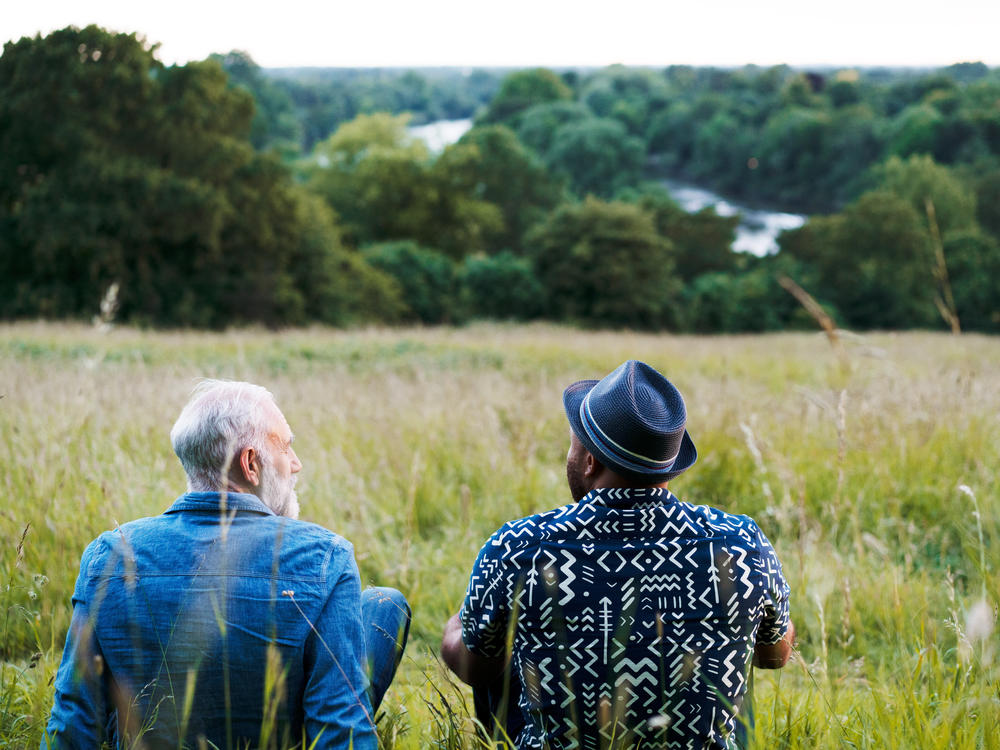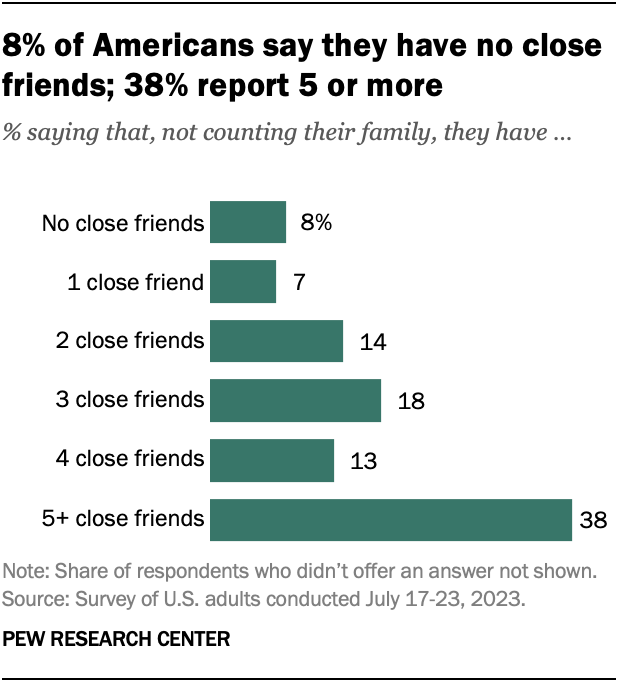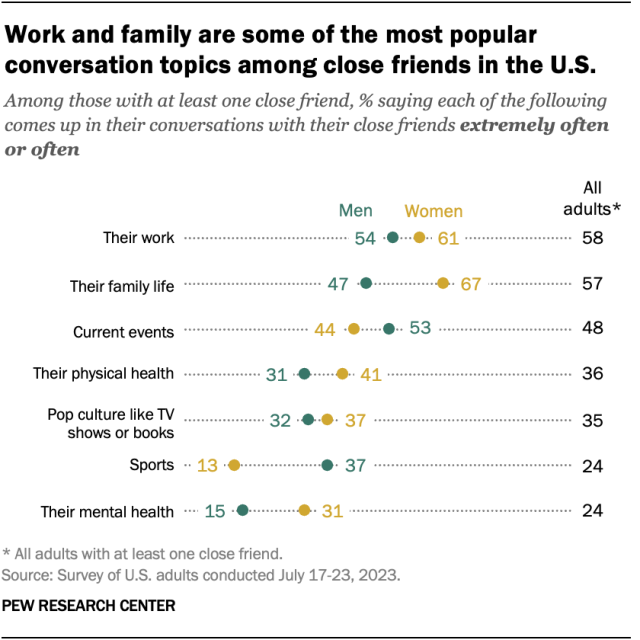Section Branding
Header Content
How many friends do Americans have? A survey crunched the numbers
Primary Content
New research has delved into what friendship in the U.S. looks like, including just how many friends the average American has.
Who are they? Friends can be anyone from the folks in your Dungeons & Dragons group, the neighbors in your weekly potluck, or that chatty classmate you started hanging out with from your ceramics course.
- A study released this month from the Pew Research Center crunched the numbers on friendship in the U.S., and just how much they mean to us.
What are the key findings?
- According to Pew, 61% of adults in the U.S. say that having close friends is essential to living a fulfilling life — that's more than those who cited marriage, children or money.
- A slim majority of adults surveyed (53%) said they have between one and four close friends. 38% said they had about five or more.
- About 8% said they had no close friends. That adds up with what some experts are describing as an epidemic of loneliness for some Americans.
- Of those friend-having adults, 72% expressed high levels of satisfaction with their friendships. Turns out comradery with your favorite people can leave you feeling content!
- The survey respondents that reported larger groups of friends also felt more satisfied with the quality of their friendships compared to those with fewer close friends. Maybe those fellas from that famous '90s sitcom about friendship were onto something.
- Generally, people talk most about work (shocker!), family and current events. But that frequency can also change depending on gender.
- Women surveyed reported discussing family life, as well as mental and physical health, at higher rates than men. Men are more likely than women to talk to their close friends about sports and current events.
Want more on people? Listen to Consider This on how Los Angeles is using AI to combat homelessness.
What are people saying? There's a lot to be said about how we relate to each other in today's world, especially after the pandemic shook up our routines.
In May, the U.S. Surgeon General released an advisory on the epidemic of loneliness in the United States, which found that lacking connection can increase the risk for premature death to levels comparable to smoking 15 cigarettes a day. Here's what Surgeon General Vivek Murthy had to say on All Things Considered about it:
In the last few decades, we've just lived through a dramatic pace of change. We move more, we change jobs more often, we are living with technology that has profoundly changed how we interact with each other and how we talk to each other ... And you can feel lonely even if you have a lot of people around you, because loneliness is about the quality of your connections.
Here's author Lydia Denworth, who wrote a book on friendship, on how they positively impact us mentally and physically:
They can change your cardiovascular system, your immune system, how you sleep, your cognitive health. How could this thing that exists entirely outside the body affect whether you're likely to catch a virus? And yet that's exactly what we now know that social connection does. We thought of loneliness as this difficult emotion, but just an emotion. And we think of friends as this lovely thing — but it is actually a matter of life and death.
And Hanne Collins says forging little connections is a good place to start. Collins helped co-author a study on the importance of talking to strangers in your everyday life, a factor titled "relational diversity":
It's about this mix. It's about connecting with people who are close to you, who are maybe less close to you, who connect you with other people, who provide different kinds of support. Essentially, the idea is that the more diverse your social portfolio, the happier you are and the higher your well-being.
So, what now?
- Don't know where to start with making friends? Life Kit's got you covered.
- You read my whole article, which by journalist terms, automatically makes us friends now. Love you, bestie!
Learn more:
- How age, stress and genetics turn hair gray
- The FDA is proposing a ban on hair relaxers with formaldehyde due to cancer concerns
- Too much red meat is linked to a 50% increase in Type 2 diabetes risk
Copyright 2023 NPR. To see more, visit https://www.npr.org.



